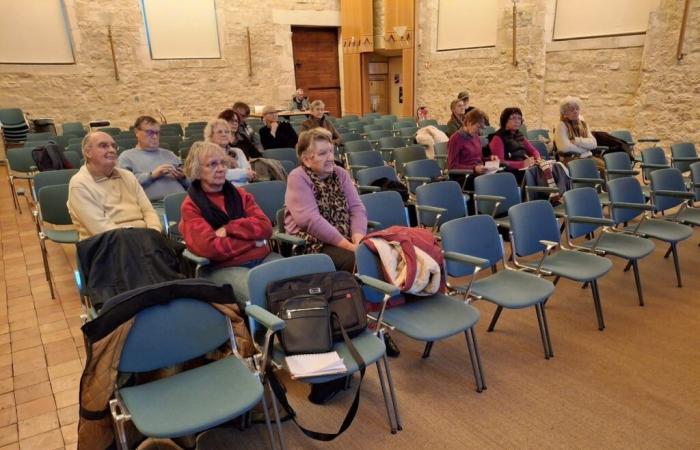On January 10, Bernard Hérold presented a conference entitled “From Gossec to Mehul via Rouget de Lisle. The coincidences of notoriety”.
These three figures from the 18th centurye century, although having lived in different times and places, share one thing in common: they are all three musicians, more or less recognized and are at the origin of the songs of the French Revolution of the year 1789.
François-Joseph Gossec (1734-1829), real name Gossé, born in Vergnies, Belgium, is the oldest of the three and the one who lived the longest. From 1795 to 1814, he taught composition at the new Conservatoire, where he was the inspector until its dissolution under the Restoration. In 1804, he was promoted to knight of the Legion of Honor.
Etienne Nicolas Méhul (1763-1817), born in Givet, was the main opera composer in France during the French Revolution. Considered one of the first so-called “romantic” musicians in France, he broadened the sound field of the symphony, like his contemporaries, Haydn and Beethoven. His works deeply influenced Hector Berlioz.
Claude Joseph Rouget de Lisle was born on May 10, 1760, in Lons-le-Saunier. French engineer officer, poet and playwright, he is best known for his work, “La Marseillaise”, an anthem which acquired worldwide fame. He wrote and composed a song for the execution of Robespierre. When the monarchy returned, he wrote a new anthem, “Long live the King”.
The three musicians produced significant works linked to the Revolution, including “Le Chant du Départ”, written in 1794 by Marie-Joseph Chénier and set to music by Etienne Nicolas Méhul. The latter even almost replaced “La Marseillaise” during the seven-year term of Valéry Giscard d’Estaing who preferred this song to our “Marseillaise”.
Ultimately, it is the one who seems the least musically gifted who is today the most famous of the three.







